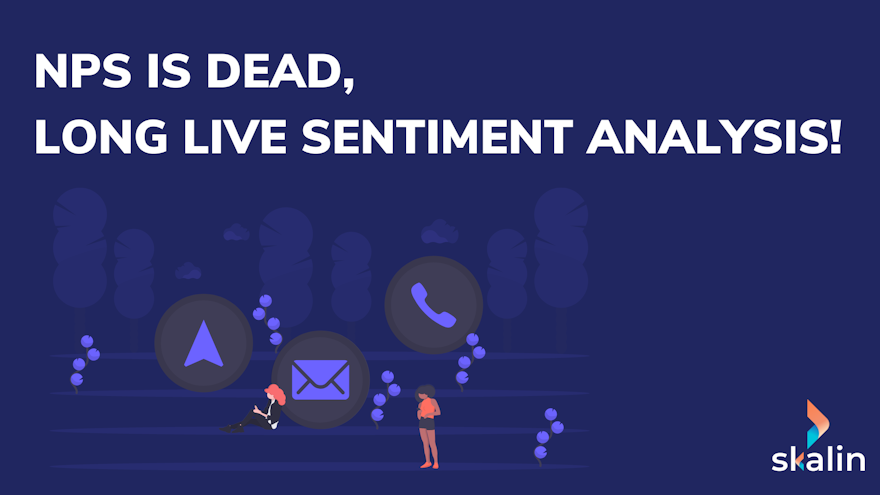Gartner predicts a rapid decline in NPS surveys over the next few years. The main criticism is that they don't allow for effective conclusions and action. We explain why we think sentiment analysis using Machine Learning is a stronger alternative.
Problems with the NPS
The study has caused quite a stir! Gartner predicts that 75% of companies will abandon the measurement of customer success via NPS by 2025.
As a reminder, the Net Promoter Score (NPS) asks the customer about his probability, from 1 to 10, of recommending a brand or a service to his friends and family. The calculation of promoters minus detractors makes it possible to determine the level of satisfaction and ultimately the loyalty of customers.

The problem is that "NPS is one of the most common KPIs in the world, but it doesn't always provide actionable information to customer service managers", said Deborah Alvord, research director at Gartner.
Another reason mentioned, 58% of customer service managers are forced by their management to measure the NPS... The NPS thus becomes a vehicle for analyzing individual and collective performance, which diverts it from its initial objective and encourages handling (set of colors, incentives from the operator to respond positively, etc.).
If we add return rates around 10-15% and very different sensitivities of the countries in the way they evaluate, it is easy to understand why the NPS does not really allow to measure the state of satisfaction of a customer portfolio.
Sentiment analysis: an objective alternative!
Sentiment analysis uses Machine Learning to examine a given text and identify the dominant emotional opinion, in particular to determine whether the author's attitude is positive, negative or neutral. It is unbiased, understands irony and can analyse in all major languages.
The method is not infallible, but used systematically, on all the conversations you have with your customers, it allows you to measure the level of satisfaction of your contacts accurately.
Integrate sentiment analysis into your customer Health Score
With Skalin, 100% of the written conversations you have with your customers are analyzed and evaluated thanks to Machine Learning via Google AI "Natural Language". The objective is not so much to measure a level of satisfaction at a given moment, but rather to follow its evolution over time to detect a possible alteration of the interactions and to trigger alerts if necessary.
This indicator, refined with notions of frequency, recency, level of coverage of interlocutors and type of contact (user, sponsor, etc.), allows you to objectively measure the quality of the customer relationship as perceived by your customer.
It is then integrated into an overall health score, which is supplemented by usage data, business KPIs and the sentiment of the CSM itself. This way, you know at all time how healthy your customers are.
Would you like to know more? Schedule a call with an expert.








